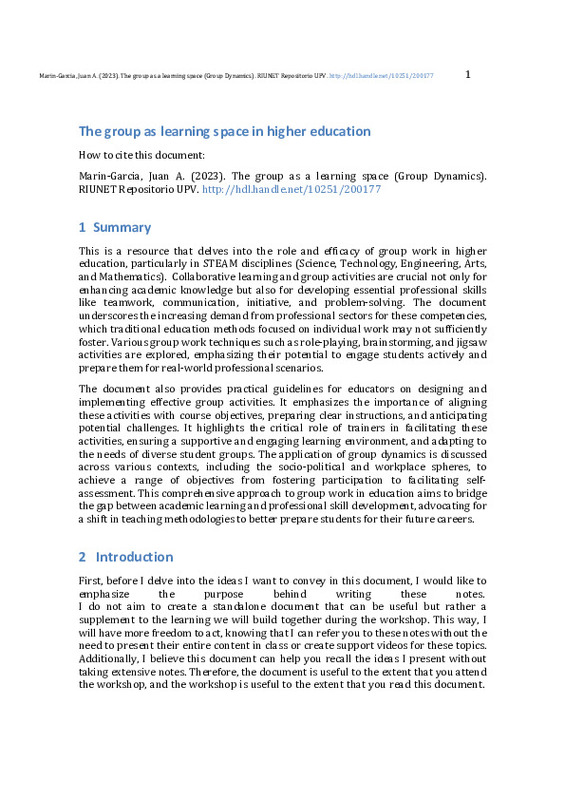JavaScript is disabled for your browser. Some features of this site may not work without it.
Buscar en RiuNet
Listar
Mi cuenta
Estadísticas
Ayuda RiuNet
Admin. UPV
The group as learning space in higher education
Mostrar el registro completo del ítem
Marín Garcia, JA. (2023). The group as learning space in higher education. http://hdl.handle.net/10251/200177
Por favor, use este identificador para citar o enlazar este ítem: http://hdl.handle.net/10251/200177
Ficheros en el ítem
Metadatos del ítem
| Título: | The group as learning space in higher education | |
| Autor: | ||
| Entidad UPV: |
|
|
| Fecha difusión: |
|
|
| Resumen: |
This is a resource that delves into the role and efficacy of group work in higher education, particularly in STEAM disciplines. It argues that collaborative learning and group activities are crucial not only for enhancing ...[+]
|
|
| Palabras clave: |
|
|
| Derechos de uso: | Reconocimiento - No comercial - Compartir igual (by-nc-sa) | |
| Tipo: |
|
recommendations
Este ítem aparece en la(s) siguiente(s) colección(ones)
-
ROGLE. Materiales docentes [83]
Grupo de investigación ROGLE (Reingeniería, Organización, trabajo en Grupo y Logistica Empresarial)







